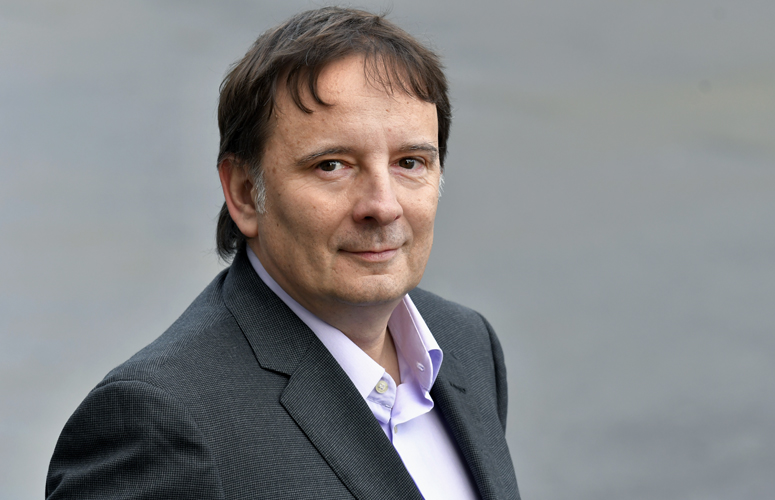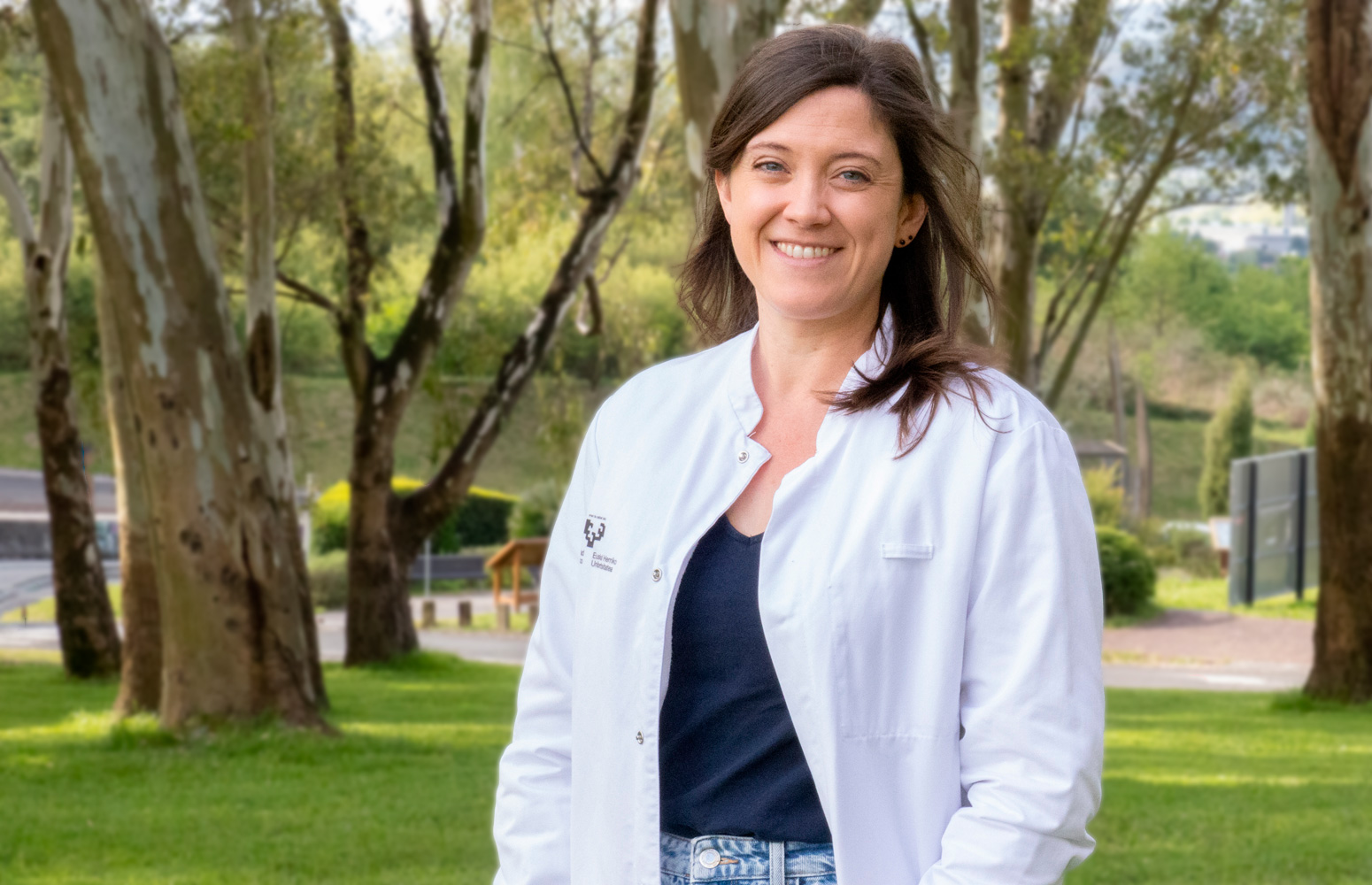Unai Zalabarria, a researcher in the UPV/EHU’s Intelligent Control Research Group, has developed an algorithm to clearly detect electrocardiographic signals via low-cost portable or wearable platforms. The aim of the work is to produce a tool that can be used to identify stress levels in people with specific physiological disorders or some kind of dysfunctionality or cognitive disability.
A solution is developed for analysing electrocardiographic signals via portable platforms
The UPV/EHU-University of the Basque Country is developing low-cost tools designed to detect stress levels in people with functional or cognitive disabilities
- Research
First publication date: 07/01/2020

The Intelligent Control Research Group (GICI) at the UPV/EHU is conducting its research work mainly within the Department of Systems Engineering and Automation. One of the lines of research of the GICI group has to do with Biomedical and Support Systems for Personal Assistance which, as the name suggests, focusses on developing solutions in applications geared towards the medical sector or personal assistance in order to improve people’s life quality. “We use techniques from the field of intelligent computing and we apply them to assistive spheres, doctors, etc.,” explained Dr Eloy Irigoyen, a lecturer in the department.
The group undertakes a broad range of work, including the study of alternatives of a non-intrusive nature for sensorization in humans, which can be deployed in clothing or wearable ergonomic accessories. Following years of experience designing and developing assistive tools for people with specific disabilities, “it was decided to incorporate some kind of component that could say whether people are becoming in some way stressed”, explained Irigoyen. In this respect, “we endeavoured to determine a person’s stress level and how long it lasts by analysing electrocardiogram signals”, he added. As the researcher explained, the problem is that “whenever we try to transfer this to some kind of device or small platform that could be worn by a senior citizen someone with some kind of functional disability or with reduced capacity, the electrocardiographic signals were received masked by noise”.
Efficient signals for low-cost, portable platforms
The work conducted by the department’s researcher Unai Zalaberria has resulted in “an algorithm that is executed fairly rapidly and which offers an analysed electrocardiogram signal; in other words, the algorithm offers a solution for finding a huge quantity of actual signals that allow the heart rate and other kinds of values or variables to be determined”, explained Irigoyen.
The algorithm has been validated: “we have conducted pilot tests in experiments, in a controlled environment with volunteers, on some low-cost platforms that can be easily integrated, such as the Arduino and Raspberry Pi models," he said. “Zalabarria’s work has produced an improvement in the signal in low-cost, portable devices; the algorithm proposed gives very good results in comparison with the best currently available algorithms.”
However, Irigoyen says that in a subsequent phase, the signal will have to be processed using techniques coming from the field of intelligent computation. Likewise, the researcher added that “we have yet to make the leap to people with specific physiological disorders or some kind of dysfunctionality or cognitive disability, because it is necessary to see how variations in the physiological variables of these individuals are manifested during moments of stress”. In any case, “the ultimate aim is to get to a solution that is accessible and affordable for any type of family or situation and which can be deployed on boards with a specific processing power, but not as powerful as desktop computers or other kinds of devices that are also portable but also more expensive”, he concluded.
Additional information
This research comes within the framework of the PhD thesis by Unai Zalabarria. Unai Zalabarria himself plus Eloy Irigoyen and Raquel Martínez, lecturers in the department of Systems Engineering and Automation at the UPV/EHU, participated in the research, in which they also had the collaboration of Andrew Lowe of the Institute of Biomedical Technologies of Auckland University of Technology (New Zealand).
Bibliographical reference
Bibliographic reference
- Online robust R-peaks detection in noisy electrocardiograms using a novel iterative smart processing algorithm
- Applied Mathematics and Computation (2019)
- DOI: 10.1016/j.amc.2019.124839



